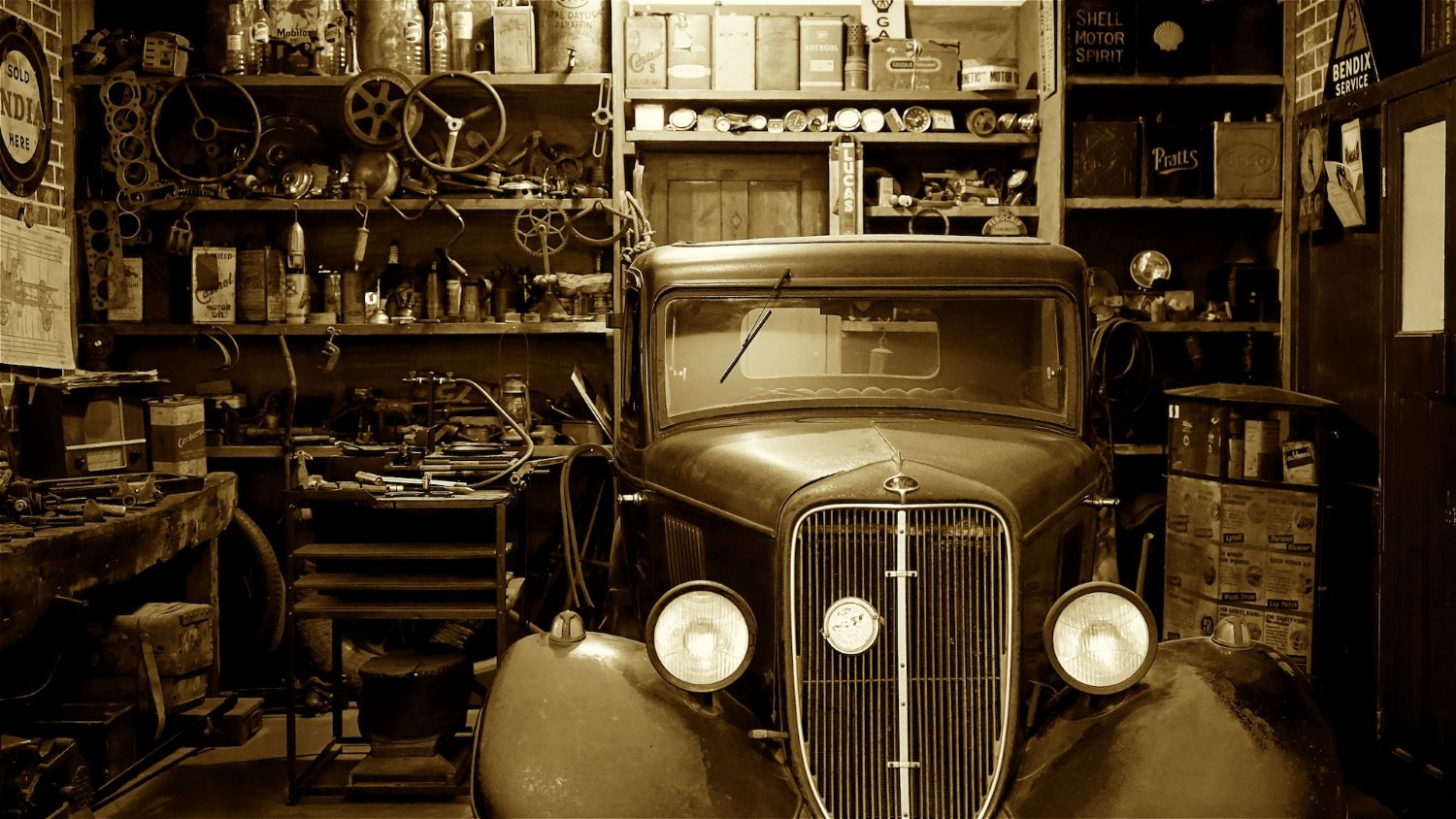Advertisement
Advertisement
The Internet is awash with workshops offering engine remaps and flash tunes. Here’s what you need to know so your 4WD doesn’t become a time bomb.
Having been tuning the ECUs (Engine Control Units) in cars, 4WDs, motorbikes, and whatever else has an engine and wheels for more than 20 years has led me to believe that there are most definitely tuners and tuners. These days, just about every workshop will offer an engine remap…and they ain’t cheap. But as the old Castrol ad said, oils ain’t oils and tunes (tuners) ain’t tunes (tuners).
Look around the web and you’ll see that an engine remap isn’t cheap, costing anywhere up to $1200. Some places will use a dyno and some won’t. Some will simply download a purchased file they can’t adjust and charge you the same as someone who’s spent a full day fiddling with stuff on a computer and a dyno to ensure your vehicle doesn’t explode.
Price when it comes to tuning is like prices with everything else in life. It’s not always an indicator of quality. There are some shops that tune properly for cheap, and others that don’t and are pricey. Here’s what you need to know so you don’t get ripped off. We’ll start with definitions because there’s confusion around what an ECU tune or engine remap actually is. And it’s where the idea that we might be getting scammed comes from.

Flash tuning is really nothing more than grabbing a file from somewhere, usually the Interweb, and uploading it to a vehicle’s ECU. And that’s it. Unfortunately, there’s nothing custom about it. This type of engine remap isn’t tweaked to suit your vehicle or how it’s been modified. Nor does it consider what you’ll be doing with it. Having a tuner that can adjust files to suit your actual vehicle is vital.
Within that space there are Master and Slave Tuners. Master Tuners are those that have been approved by file providers and are supplied with non-encrypted files that can be modified by the tuner. Then there are slave tuners. These are the ones that are supplied with a generic file that is encrypted and uploaded to a vehicle’s ECU. This means it can’t be tweaked…not by them anyway. Sounds a bit murky, right?
It gets better. Some of these so-called tuners will often just generically bump up some of the values, by X amount on the file maps. To do all this can take less than 30 minutes and could potentially cause your engine to go boom halfway around the block. Try and go back to the tuner and they’ll likely have left the carpark they just tuned your vehicle in. Not exactly what you were expecting from your engine remap or tune, right?
We’ll keep this simple. The Engine Control Unit (ECU) which is also sometimes known as an engine control module, or even powertrain control module, is one of your vehicle’s most important brains. It’s fed by a bunch of vehicle sensors (oxygen sensors, crankshaft sensors, air temperature, and more) and processes that information based on pre-programmed parameters. These parameters are contained within maps and often there are thousands of them (hence the term ‘engine remap’.
Signals are then sent out to adjust air and fuel mixtures for maximum power and torque and fuel efficiency. In a nutshell, changing the mapping of the ECU has a knock-on effect for performance and efficiency.

An engine remap (or ECU remap) is the act of modifying things like fuel pressure, injection timing, ignition timing, boost delivery and more. The aim is to work within the limits of the engine and its peripherals but deliver an improved driving experience.
Plenty of Master and Slave tuners will try and claim they provide an engine remap, but this is, generally speaking, sales speak. What you should be looking for from a business offering an ECU remap is a provider that will extract the original file from your ECU and keep it safe. By doing this, they can always restore things to factory settings.
Great. By extracting and then copying the original file, they can then start to modify settings based on whether your vehicle is stock or modified and the things you’ve told them you want to do with it. Maybe you want a bit of extra grunt for towing? Once the tuner knows what you’re trying to achieve they’ll start tweaking the values on the maps stored within the files. From here, they’ll run the vehicle multiple times on the road and on a dyno to ensure that the adjustments are safe and performing the way they should.
Right, now that we know our Master and Slave Tuners from our genuine tuners, and what an engine remap actually is, here are the sorts of things you need to know about it to ensure you’re getting what you paid for.
This is the single most important factor when it comes to an engine remap. Does the team about to plug into your ECU have a history of getting them right? The reason you need to answer this question is that power and torque gains are easy with a common-rail turbo diesel. But getting these gains with reliability is more difficult.
Make sure they have the experience to tune your rig. There are plenty of research options available on the Internet these days from Facebook groups to a general web search. You should be able to find the duration and quantity of work any tuning shop has carried out. Too many have jumped on the ‘diesel tuning’ bandwagon with little experience and it’s here you will run into trouble.

Don’t adjust the ECU in any vehicle without a before and after dyno to check specific safety and application of the engine remap to your vehicle. From my experience, it was way more common to see turbo diesel tunes show a much wider variance than petrol tunes. There are a multitude of reasons for this but the fact remains, what may be a perfect tune in one stock N80 Hilux could be on the overly rich side in another.
It doesn’t take much to damage a diesel engine from running overly rich either, particularly when 4x4s are used primarily as high-load workhorses. To me, it’s a simple duty of care that needs to be undertaken by checking not only the results but the progress of an engine remap by gathering data on a chassis dyno.
This brings me to my next point – the file-farmers – as we like to call them versus the actual tuners. Ask the questions (and demand the answers) that the tuner you pick can actually change the software going into your ECU to get a given result. This might sound like fairly basic stuff but by far the majority of tuners that I know of are simply buying a pre-written file and then uploading it directly to your vehicle. This kind of engine remap may not be suitable for your needs.
The inability to customise the software to your actual vehicle can lead to problems with a mismatch of the mapping for the modifications you have installed. Larger airboxes, snorkels, and exhaust systems can all skew an off-the-shelf tuning process to the point where some serious knowledge is required. So, what is normally changed for the best result?
Actual tuners change a host of different parameters on the ECU when doing an engine remap. First and foremost is to match the diesel fuelling with the boost curve. You can’t add one without the other and get a solid result. This, along with altering the ‘torque request’ of the ECU mapping is where the tuner will spend the majority of their time. This is where power and torque gains are achieved.
There isn’t a single map for either of these parameters though, with a complex interwoven web of thousands of tables needing to be altered all with respect to each other to ensure that no limp modes are encountered in real-world conditions. Add to that throttle response curves, protection modes, and tuning for economy to get a handle on what it is you are actually paying for.
The guys doing the best job will spend half a day or so on an engine remap to get a professional tuning result. You will be able to see how long this has actually taken by looking at the times for the initial versus the final run on the dyno sheet you are provided. Sometimes we can all fluke it and get it spot-on the money first time. But more often than not this isn’t actually the case. Several tunes will usually need to be flashed to the ECU to get it spot-on. That’s why it’s important for any tuner worth their salt to have a dyno.

This is a tricky issue. Should the tuner be responsible for the mechanical integrity of the engine? They should all be responsible for the quality of their work, and if carried out correctly should not cause excessive wear and tear on the engine or transmission. However, it’s a given that more power and torque will wear components faster.
From a manufacturer’s point of view, many of them can indeed see that the ECU has been modified. You need to understand that should you choose to modify outside of the manufacturer’s parameters you will effectively take over the warranty yourself. The saying is an old one – you play, you pay.
Ensure that your tuner saves your original file or has an image so that if needed the vehicle can be reset to the factory tune should it be required at any stage. Most tuners will offer this to their customers for a small (time) charge. Make sure you get across this before you book in and hand over your hard-earned cash for your engine remap.
If you can tick all of the boxes above it doesn’t really matter if you are paying $500 or $1500 for a tune. The fact that it is right has nothing to do with the illusion of a better result that a higher price tag can give. Keep your calm, keep your head, ask the right questions, and look for proven results using the pointers we have supplied above.
There are literally dozens of different tuning modules available off the net in the range of $80 – $280 that promise glorious diesel power and torque gains. They are mostly all different in the brand but have one major thing in common – that being, all they do is pump up the fuel pressure. That’s right. If you look at these modules or ‘chips’, they will all plug into the Common Rail Pressure Sensor of the engine and they simply make the signal (voltage coming from the sensor) read lower than it actually is.
In response to this lower signal voltage, the factory ECU will then command the fuel pump to raise the fuel pressure back to what it thinks is normal (and is now higher). This in turn makes the engine run richer which can sometimes lead to gains in power and torque. As that this is normally at the expense of increased Exhaust Gas Temperature, it now can be dangerous for the life of the engine if not checked and monitored properly.
The bottom line is this…for the $280 or so to buy one of these ‘Mystery Boxes’ and then having to pay the time and adjustment that is normally required on a dyno (to make sure your engine doesn’t blow up), you are most of the way towards getting your engine tuned properly.
This is a great post! I was just wondering if you could recommend a good ECU remapping shop. I’m thinking of doing it myself, but I’m not sure where to start.